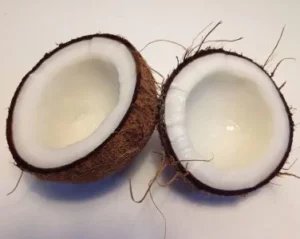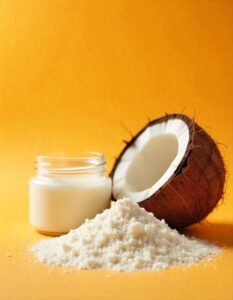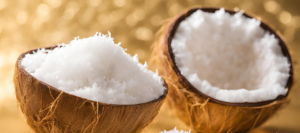Coconut Byproducts: A Key to Sustainable Living

Coconut trees are commonly associated with beautiful tropical landscapes and refreshing coconut water. However, these versatile trees offer much more than just a refreshing drink. Coconut byproducts play a crucial role in supporting a sustainable lifestyle. From the coconut meat to the husks and shells, every part of the coconut can be utilized in various ways, making it an eco-friendly and resourceful option. Let’s explore how coconut byproducts contribute to a sustainable way of living.
1. Nutrient-Dense Coconut Oil
One of the most popular coconut byproducts is coconut oil. Widely used for cooking and beauty care, coconut oil offers numerous health benefits. It is extracted from the matured coconut meat and contains healthy saturated fats that promote good cholesterol levels.
Moreover, unlike other cooking oils, coconut oil has a high smoke point, making it suitable for various cooking methods, including frying and baking. By choosing coconut oil as an alternative, you can support sustainable agriculture practices and reduce your dependency on harmful chemical-laden alternatives.
Learn more about the benefits of coconut oil and how it can be incorporated into your daily life.
2. Nutritious Coconut Flour
Coconut flour is gaining popularity among health-conscious individuals due to its gluten-free and high-fiber properties. It is a byproduct of coconut meat extraction, where the dried coconut meat is ground into a fine powder.
The use of coconut flour not only caters to those following a gluten-free diet but also promotes sustainable agriculture. Coconut flour is made from the fibrous residue left after extracting coconut milk or oil. By utilizing this byproduct, we reduce waste and ensure the efficient use of all parts of the coconut.
Get inspired by these delicious recipes using coconut flour and discover a new way to incorporate sustainable ingredients into your meals.
3. Renewable Coconut Husk Fibers
Coconut husks, which are often discarded as waste, have great potential as a renewable resource. The fibrous material found between the hard shell and the coconut itself, known as coir, can be used for various applications.
Coir is commonly used as a natural fiber in the production of doormats, mattress filling, erosion control blankets, and garden mulch. By utilizing coconut husk fibers, we reduce our dependency on synthetic materials and contribute to sustainability efforts.
4. Biodegradable Coconut Shell Products
Coconut shells are not just a waste product. They can be transformed into a wide array of eco-friendly products. The hard shells can be used creatively to make bowls, utensils, planters, and even charcoal.
By replacing plastic or other non-biodegradable materials with coconut shell products, we reduce the environmental impact and support sustainable living. These products are not only visually appealing but also serve as a powerful reminder to choose eco-friendly alternatives in our daily lives.
5. Organic Coconut Sugar
In recent years, there has been a growing demand for natural and unrefined sweeteners, and coconut sugar has become a popular choice. Made from the sap of the coconut tree blossoms, coconut sugar offers a delicious and sustainable alternative to refined sugars.
Unlike refined sugars, the production of coconut sugar is a natural and environmentally friendly process that doesn’t involve harmful chemicals. By choosing coconut sugar, you support organic farming practices and reduce your carbon footprint.
Conclusion
From coconut oil to coconut flour, husk fibers, shell products, and sugar, the byproducts of mature coconut provide us with sustainable alternatives to everyday products. By incorporating coconut byproducts into our lives, we contribute to reducing waste, supporting eco-friendly practices, and promoting sustainability.
Next time you indulge in coconut-based products, remember the impact these choices can have on our planet. Choose wisely, embrace sustainability, and let coconut byproducts pave the way for a more eco-friendly future.
“The coconut tree begins to bear fruit 6-10 years after planting and continues to produce for about 70 years, with virtually every part of the tree being used.” – Coconut Development Board



